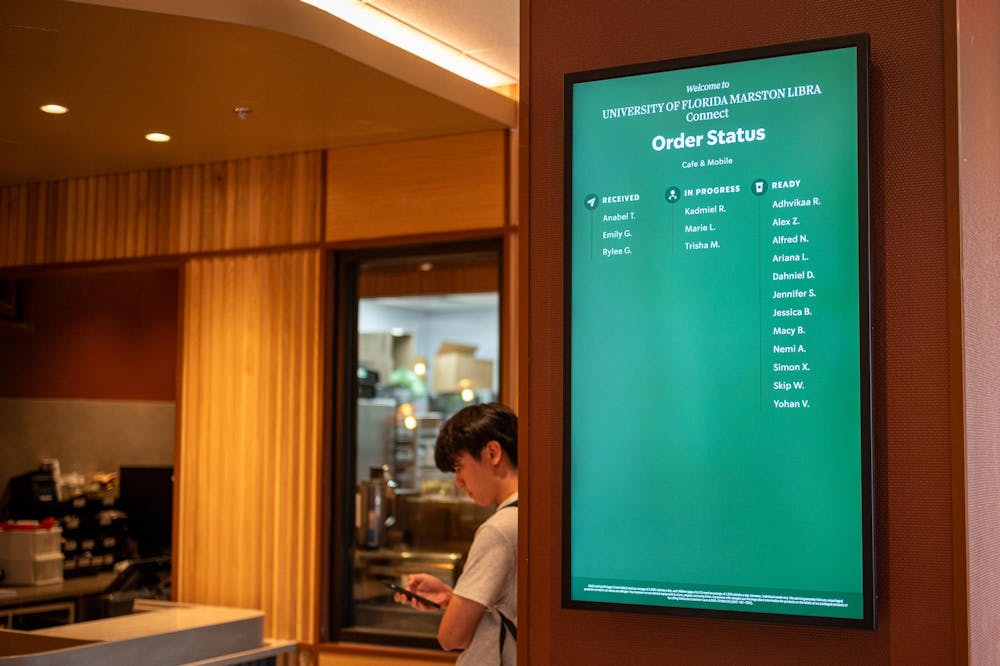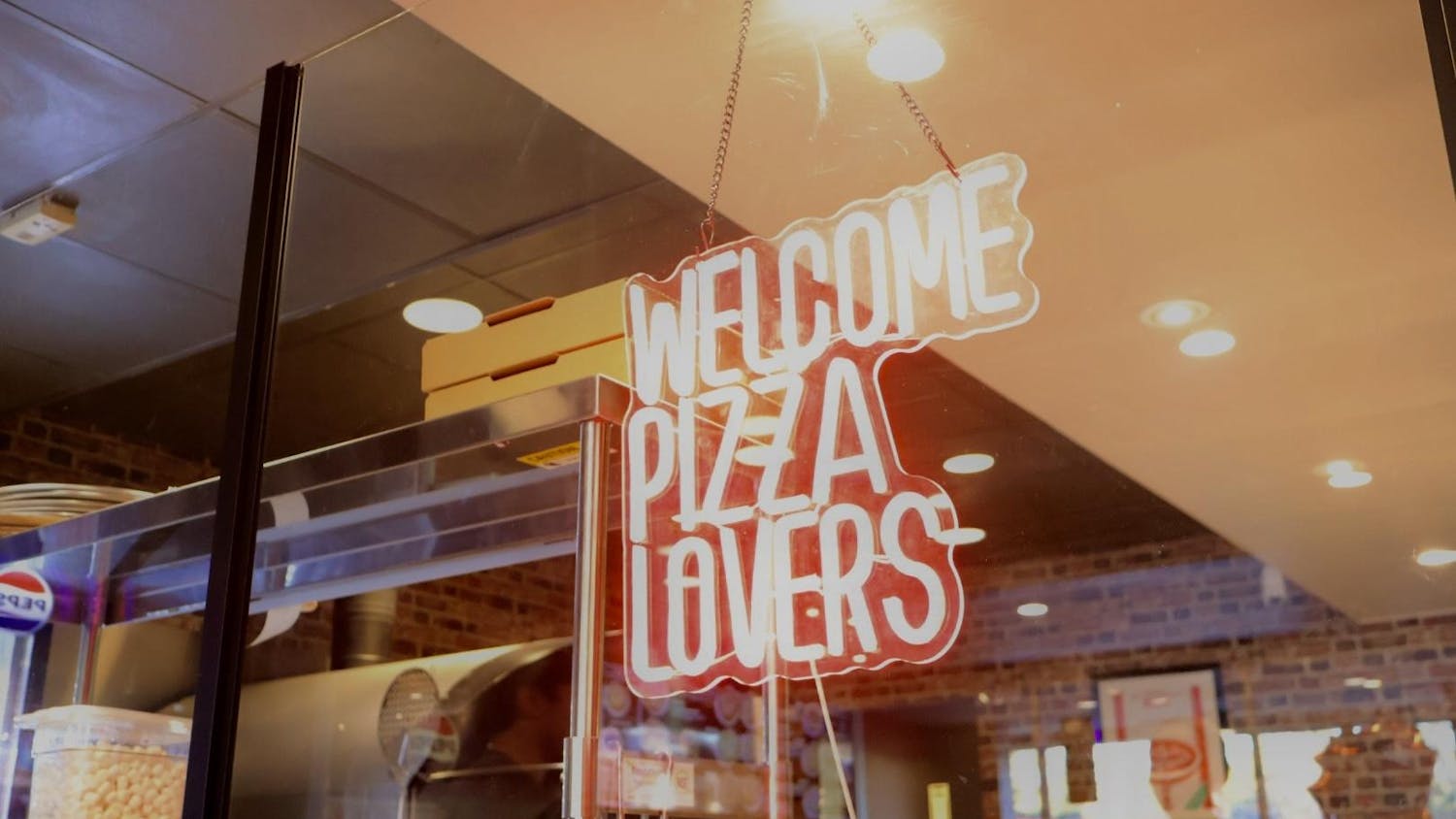Meal swipes and credit cards no longer work at Marston Science Library’s Starbucks — from now on, the Starbucks app must take your order.
The Marston location is the first on-campus Starbucks to take on the new store model, where orders can only be placed via the Starbucks mobile app.
The mobile-only model aims to eliminate using cash or card to pay. By doing so, Starbucks customers must use its mobile app and load a Starbucks card for payment, with a minimum reload amount of $10.
No other university Starbucks locations are planning for the change, according to Florida Fresh Dining representative Courtland Thomas.
“By streamlining transactions through mobile ordering, we’re able to reduce wait times and improve overall service efficiency,” Thomas said.“We anticipate minimal disruption to their dining experience.”
Those looking to buy items under $10 must still load their card to access their nearest café, a stipulation some students find tough.
Marianna Innocenti, a 19-year-old UF business sophomore and Starbucks customer, said the changes are inconvenient, especially disabling the use of Flex or UF dining credit.
Considering how many freshmen go to the Marston Starbucks and have meal plans, Innocenti said, this could particularly impact new students.
Innocenti said the Starbucks at Library West is her friends’ cafe of choice. Even if that location were to adopt the same changes as Marston, Innocenti said she and her friends would adapt and continue to use the location.
Meanwhile, the Starbucks at the Hub underwent construction with the appearance of a similar redesign to the one at Marston. Instead, the Hub’s location reopened on Sept. 1 as a Century Café, which continues to accept most payment methods, including credit cards and UF meal plans.
Jorge Jimenez, a 30-year-old UF mathematics doctoral student and a frequent Marston Starbucks customer, expressed his disdain with the new model after being refused a cup of tap water because he could not order it on the mobile app.
“We are seeing this transition in the general culture to this sort of digital economy,” Jimenez said. “It’s one small part of a bigger plan to get rid of paper money.”
For frequent customers, however, minimum reload amounts aren’t a deterrent. Some students also recognize the efficiency of mobile ordering and how it can simplify the job for baristas.
Federica Amati, a 21-year-old UF data science and anthropology senior and Marston Starbucks customer, said she prefers having the option to use other payment methods but understands mobile orders make work easier for baristas who will no longer have to handle taking payments.
“I don’t really buy a lot of coffee on campus but … I think for the workers, it’s nice,” Amati said.
Contact Noah Lantor at nlantor@alligator.org. Follow him on X at @noah_lantor.

Noah is the Spring 2026 multimedia editor. He previously worked as the assistant multimedia editor for one semester and as a staff photographer for two semesters covering community stories and sports across Gainesville. Before his time at UF, Noah worked on the sidelines at Maryland and Penn State photographing their football teams. He has also done freelance and graduate photography work in his home state of Maryland. In his free time, he enjoys following hockey, football and traveling to rural places.






